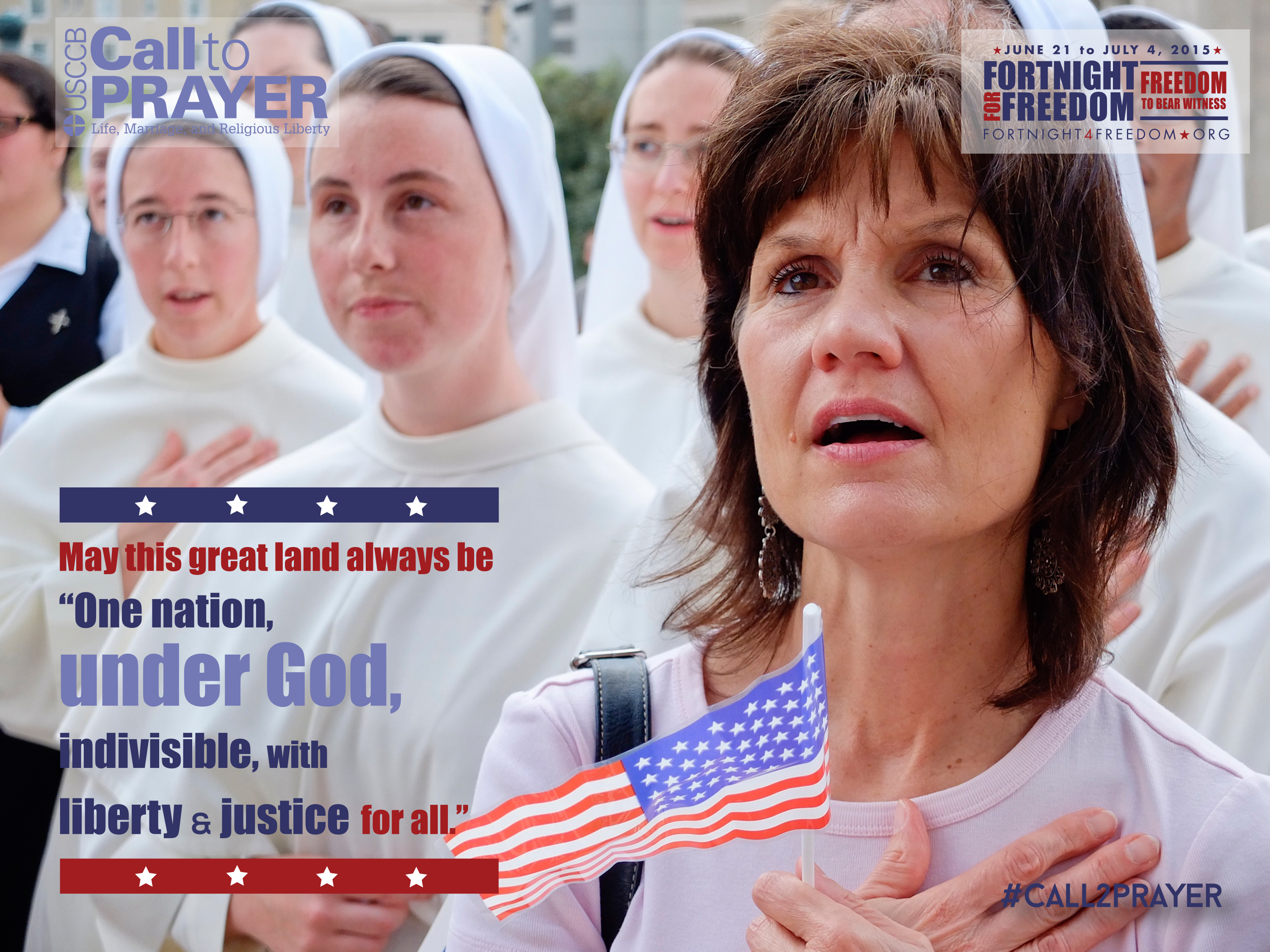USCCB Chairmen Applaud Supreme Court’s Respect for Religious Liberty in Masterpiece Cakeshop Decision
WASHINGTON—Today, the U.S. Supreme Court decided the case of Masterpiece Cakeshop v. Colorado Civil Rights Commission. The case involves a Christian baker named Jack Phillips who declined in 2012 to create a custom wedding cake for a same-sex ceremony. State officials sought to compel Phillips to create such cakes under Colorado’s public accommodations law. The Supreme Court ruled 7-2 in favor of Phillips under the Free Exercise Clause of the First Amendment to the U.S. Constitution.
Archbishop Joseph E. Kurtz of Louisville, Chairman of the Committee for Religious Liberty, Archbishop Charles J. Chaput, O.F.M. Cap., of Philadelphia, Chairman of the Committee on Laity, Marriage, Family Life and Youth, and Bishop James D. Conley of Lincoln, Chairman of the Subcommittee for the Promotion and Defense of Marriage of the U.S. Conference of Catholic Bishops (USCCB), issued the following joint statement:
“Today’s decision confirms that people of faith should not suffer discrimination on account of their deeply held religious beliefs, but instead should be respected by government officials. This extends to creative professionals, such as Jack Phillips, who seek to serve the Lord in every aspect of their daily lives. In a pluralistic society like ours, true tolerance allows people with different viewpoints to be free to live out their beliefs, even if those beliefs are unpopular with the government.”
The USCCB filed an amicus curiae brief supporting Masterpiece Cakeshop, which can be found here: http://www.usccb.org/about/general-counsel/amicus-briefs/upload/16-111-tsac-USCCB.pdf.
Archive
Call to Prayer: February, 17th, 2017
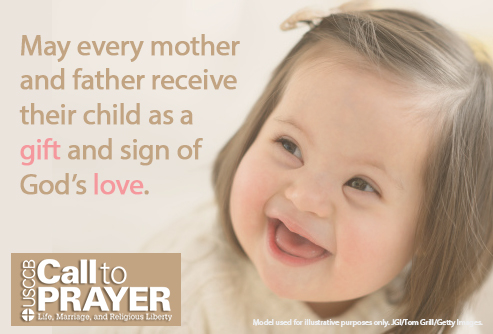
Archive
USCCB Chairmen Urge Support for the “First Amendment Defense Act”
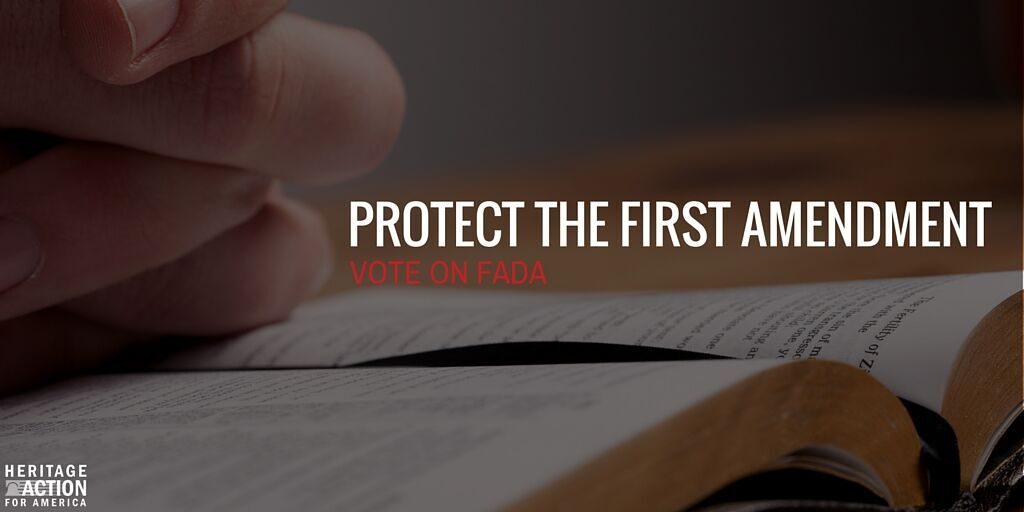 Urging support for the First Amendment Defense Act Archbishop Salvatore J. Cordileone of San Francisco, chairman of the U.S. Conference of Catholic Bishops (USCCB) Subcommittee for the Promotion and Defense of Marriage and Archbishop William E. Lori of Baltimore, chairman of the Ad Hoc Committee for Religious Liberty, issued the following statement on July 12, 2016:
Urging support for the First Amendment Defense Act Archbishop Salvatore J. Cordileone of San Francisco, chairman of the U.S. Conference of Catholic Bishops (USCCB) Subcommittee for the Promotion and Defense of Marriage and Archbishop William E. Lori of Baltimore, chairman of the Ad Hoc Committee for Religious Liberty, issued the following statement on July 12, 2016:
Today the House Oversight and Government Reform Committee will hold a hearing on the First Amendment Defense Act (FADA). The USCCB has been vocal in support of this legislation, as it would provide a measure of protection for religious freedom at the federal level. FADA is a modest but important step in ensuring conscience protection to faith-based organizations and people of all faiths and of no faith who believe that marriage is the union of one man and one woman, protecting them from discrimination by the federal government. The increasing intolerance toward religious belief and belief in the conjugal meaning of marriage makes these protections essential for continuing faith-based charitable work, which supports the common good of our society. Faith-based agencies and schools should not lose their licenses or accreditation simply because they hold reasonable views on marriage that differ from the federal government’s view.
The definition of marriage as the union of one man and one woman, universally held for centuries, has nothing to do with disrespect for others, nor does it depend on religious belief. Rather, it is based on truths about the human person that are understandable by reason. Faithful to its commitment to serve the best interests of society, the Catholic Church will continue to promote and protect the truth of marriage as foundational to the common good. The Church will also continue to stand for the ability of all to exercise their religious beliefs and moral convictions in public life without fear, and to witness to the truth.
We are pleased to support the First Amendment Defense Act, and we urge Congress to pass this important legislation.
Archive
Call to Prayer: July 3, 2015
Archive
Bishops Respond to New Dept of Labor Regulations
The chairmen of four committees responded to the new Department of Labor Regulations that are the result of the Executive Order of July 21 prohibiting federal government contractors from what the Administration deems “sexual orientation” and “gender identity” discrimination. The chairmen are Archbishop Thomas G. Wenski of Miami, chairman of the Committee on Domestic Justice and Human Development; Archbishop Salvatore J. Cordileone of San Francisco, chairman of the Subcommittee for the Promotion and Defense of Marriage; Archbishop William E. Lori of Baltimore, chairman of the Ad Hoc Committee for Religious Liberty; and Bishop Richard J. Malone of Buffalo, New York, chairman of the Committee of Laity, Marriage, Family Life and Youth.
Here is the full text:
The regulations published on December 3 by the U.S. Department of Labor implement the objectionable Executive Order that President Obama issued in July to address what the Administration has described as “sexual orientation” and “gender identity” discrimination in employment by federal contractors. We will study the regulations carefully, but we note the following initially. Our Church teaches that “[e]very sign of unjust discrimination” against those who experience same-sex attraction “should be avoided” (Catechism of the Catholic Church, CCC 2358)—but it appears on an initial reading that these regulations would prohibit far more than that “unjust discrimination.” In particular, they appear also to prohibit employers’ religious and moral disapproval of same-sex sexual conduct, which creates a serious threat to freedom of conscience and religious liberty, because “[u]nder no circumstances” may Catholics approve of such conduct (CCC 2357). Very many other people over a broad spectrum of different religious faiths hold this same conviction. Additionally, the regulations advance the false ideology of “gender identity,” which ignores biological reality and harms the privacy and associational rights of both contractors and their employees. In justice, the Administration should not exclude contractors from federal contracting simply because they have religious or moral convictions about human sexuality and sexual conduct that differ from the views of the current governmental authorities.
Archive
Child Welfare Provider Inclusion Act
Yesterday, U.S. Senator Mike Enzi (R- Wyo.) and Representative Mike Kelly (R- Pa) introduced the Child Welfare Provider Inclusion Act. This Act is meant to protect organizations who provide child welfare services, such as foster care and adoption, when they have convictions that a child should only be placed with a married mother and father. Currently, a number of organizations are unable to be of service because of their beliefs about marriage.
Three USCCB Chairmen (Archbishops Cordileone, Lori, and Wenski) gave their support to this bill, noting that, “Indeed, women and men who want to place their children for adoption ought to be able to choose from a diversity of adoption agencies, including those that share the parents’ religious beliefs and moral convictions.”
The Pennsylvania Catholic Conference also indicated their support for the Bill, noting, “In 2012, Catholic Charities helped complete over 3,000 adoptions and foster care placements, including permanent homes for over 1,600 special needs or “hard-to-place” children. By allowing a diversity of providers through the Inclusion Act, we will be putting the needs of children first and also protecting the religious liberty of long-serving child welfare providers.”
Archive
European Court for Human Rights
On July 16th, 2014 the European Court of Human Rights ruled that not extending the right to marry to same-sex couples does not violate the European Convention on Human Rights.
The petitioner to the court in this case was a man in Finland who had gone through a sex change and wanted to change his identity. He was told that if he was to do so, he would no longer be recognized as married to his wife: that marriage could be dissolved or transformed into a civil partnership.
The court explained that the European Convention “enshrines the traditional concept of marriage as being between a man and a woman.” Therefore it does not require acceptance of same-sex unions.The majority of the countries in the European Union maintain the true meaning of marriage as a bond between one man and one woman.
There’s an article about this ruling and its possible implications for American at Aleteia.
Archive
Fortnight for Freedom June 21-July4
The Bishops have called us to join once again in praying for religious liberty in the Fortnight for Freedom! Check out the video: http://bcove.me/7lk73omo
Archive
Pennsylvania Catholic Conference Statement on Marriage Ruling
Read the statement on the recent marriage ruling from the Pennsylvania Catholic Conference. You may also be interested in Archbishop Chaput’s commentary on his Facebook page or Bishop Bambera’s statement as well.
Archive
Virginia Bishops File Amicus Brief to Defend Marriage, Commonwealth’s Constitution
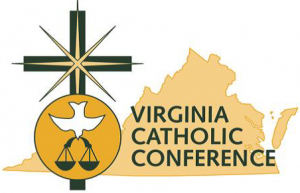 The Bishops of Virginia, represented by the Virginia Catholic Conference, filed an amicus curiae brief today with the U.S. Court of Appeals for the Fourth Circuit. In January, District Court Judge Arenda Wright Allen struck down the provision in Virginia’s constitution that affirms marriage as the union of one man and one woman. The brief filed on behalf of the Virginia Catholic Conference explains, “Virginia’s interest in marriage is based in the Commonwealth’s foresight that changing the legal definition of marriage would unavoidably change the way Virginia’s citizens view marriage and make the Commonwealth’s marriage laws adult-focused rather than child-focused. If the message and function of marriage is changed in concept, the cultural significance attached to marriage will also change.”
The Bishops of Virginia, represented by the Virginia Catholic Conference, filed an amicus curiae brief today with the U.S. Court of Appeals for the Fourth Circuit. In January, District Court Judge Arenda Wright Allen struck down the provision in Virginia’s constitution that affirms marriage as the union of one man and one woman. The brief filed on behalf of the Virginia Catholic Conference explains, “Virginia’s interest in marriage is based in the Commonwealth’s foresight that changing the legal definition of marriage would unavoidably change the way Virginia’s citizens view marriage and make the Commonwealth’s marriage laws adult-focused rather than child-focused. If the message and function of marriage is changed in concept, the cultural significance attached to marriage will also change.”
Archbishop Salvatore Cordileone of San Francisco, chairman of the U.S. Conference of Catholic Bishops’ Subcommittee for the Promotion and Defense of Marriage voiced his support of the legal action. “The Bishops of the Catholic Church in the United States are united in their desire to preserve the institution of marriage, and we support the Virginia bishops in their effort to defend Virginia’s recognition of marriage as the union of one man and one woman. For the good of children, it is critical that society preserve the true meaning of marriage.”
With the Virginia Catholic Conference, the U.S. Conference of Catholic Bishops (USCCB) also filed an amicus brief in Bostic v. Schaefer, along with four other institutions. Oral arguments in this case were heard on May 13, 2014. The audio is available at the United States Court of Appeals for the Fourth Circuit.
Click here for the full press release. The amicus brief can be found at www.vacatholic.org.
Updated Monday, May 19, 2014
Archive
Friday Fast: March 28
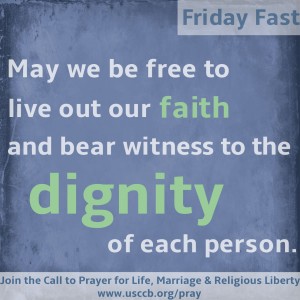 Reflection: “Pope Francis has observed that ‘religion [cannot] be relegated to the inner sanctum of personal life, without influence on societal and national life.’ …Every Christian is called to practice charity in a manner corresponding to his or her vocation. Some Catholics, like the Little Sisters of the Poor who run nursing homes for the elderly poor, devote their entire lives to helping others and embrace a vow of poverty themselves” (Archbishop Kurtz).
Reflection: “Pope Francis has observed that ‘religion [cannot] be relegated to the inner sanctum of personal life, without influence on societal and national life.’ …Every Christian is called to practice charity in a manner corresponding to his or her vocation. Some Catholics, like the Little Sisters of the Poor who run nursing homes for the elderly poor, devote their entire lives to helping others and embrace a vow of poverty themselves” (Archbishop Kurtz).
Yet the HHS mandate compels objecting employers to provide coverage for drugs and devices which are against their consciences and threatens the ministries of the Little Sisters of the Poor and many others.
As this and many other lawsuits progress, let us continue our prayer efforts for the protection of the religious freedom so we may practice charity and live out our faith without penalty.
Did You Know? This Tuesday, the Supreme Court heard oral arguments in two cases brought by families who are seeking protection of their religious freedom.
Archbishop Joseph Kurtz, president of the U.S. Conference of Catholic Bishops, shares comments in his op-ed, “Will the Owners of Hobby Lobby Have to Check Their Faith at Their Own Door?”
Archive
The Annunciation and Freedom
“Behold, I am the handmaid of the Lord. May it be done to me according to your word.” (Luke 1: 38).”
Today we celebrate that great event when the Angel Gabriel visited Mary and asked her to be the Mother of God. The Annunciation is a huge solemnity in the Church because it commemorates that moment when God took on human flesh. This day exemplifies God’s love for us in so many ways. All throughout the Old Testament we read about examples when God’s love was rejected by His people. Time and time again, He offered opportunities to accept His love, all the while, allowing His people to choose Him freely (or not choose Him as was often the case). Mary’s fiat or “yes” is celebrated because unlike anyone in history before her, she was completely and unreservedly open to God’s will in her life.
The event of the Annunciation teaches us a great deal about freedom. Often times, when we think of freedom, we see it as the ability to choose between “a” or “b,” without any pressure or influence to choose either one. We often believe that such an influence would be considered an infringement on our freedom. But when we look closer, this view of freedom is devoid of all truth. It assumes there is no difference between the options “a” and “b” and that the only good is the ability to choose. It never considers what is being chosen.
Authentic freedom, on the other hand, is shaped by truth. In the words of John Paul II, “Truth enlightens man’s intelligence and shapes his freedom.” Apart from truth, freedom cannot exist. Take for example persons considered “free” to “express their sexuality” through the use of pornography, a medium that completely disregards the truth of human dignity and what human sexuality is made for. Through this addicting “expression,” a person can quickly become a slave to the sin of pornography. Contrarily, we are most free when we are living according to the truth of our existence. Because she had never been touched by the stain of sin, Mary was completely free to embrace the will of God. She was completely free to live the life she was made to live.
Another lie society tells us is that our ability to choose is simply that, our choice. No one else needs to be involved and no one else should matter. We are autonomous, self-determining individuals, so the theory goes. The Annunciation shows us this is not the case. Mary’s willingness to participate in the event of the Incarnation has affected all of history. All of creation waited in anticipation of Mary’s “Yes.” We are all sharers in the benefit of Mary’s decision to choose the will of God. No choice we make is ever merely personal because we are all connected through our common humanity.
Finally, the Annunciation shows us that we can never truly separate faith and life. This is sometimes difficult to accept, especially within a culture that emphasizes the importance and necessity of separating “Church and state.” Today, it is considered normal to be “personally opposed” to something, but okay with it happening in the public realm. Our Catholic faith is different, however. There is no distinction between the public and private realm when it comes to living out our faith. Everything we do, whether it be eating, sleeping, talking or reading, should be done with an eye to who we are as created beings and why God made us. The Incarnation shows us that the physical matters. Salvation history occurs within history, it is a physical event.
There is a poem by Rev. John Duffy, C.S.s.R. which describes Mary’s first awakening after the Angel Gabriel appeared to her. In describing Mary, the poem explains “She was the Mother of the wandering Word, little and terrifying in her laboring womb. And nothing would again be casual and small, but everything with light invested (italics mine).” The Incarnation displays for us how involved God is in our daily lives. “For God so loved the world that He gave His only begotten Son (John 3:16).” He is not some distant God who creates us and leaves us to figure things out on our own. Instead, God is invested in our lives at every moment. He holds us in being through love, in love, and for love. As John Paul II explained, “man remains a being that is incomprehensible for himself, his life is senseless, if love is not revealed to him, if he does not encounter love (Redemptor Hominis, no 10).” So nothing we do should be separated from this realization that God is Love and desires each of us to be united with Him in Love. When we realize this, “nothing [will] again be casual and small.”
Archive
USCCB Subcommittee Chairman Strongly Supports Amending U.S. Constitution to Protect Marriage
Archbishop Cordileone: Marriage Protection Amendment to the U.S. Constitution is needed
Amendment is only remedy against judicial activism
Elemental truth of marriage deserves highest protection in law
February 19, 2014
WASHINGTON—Expressing strong support for the federal Marriage Protection Amendment (H. J. Res. 51) introduced by Rep. Tim Huelskamp (R-KS) in the U.S. House of Representatives, Archbishop Salvatore Cordileone of San Francisco said, “The amendment would secure in law throughout the country the basic truth known to reason that marriage is the union of one man and one woman.” Archbishop Cordileone , chairman of the U.S. Conference of Catholic Bishops’ Subcommittee for the Promotion and Defense of Marriage, made the comments in a February 19 letter of support to Rep. Huelskamp.
Referencing recent federal court decisions striking down a number of state marriage laws, Archbishop Cordileone said, “An amendment to the U.S. Constitution is the only remedy in law against this judicial activism that may ultimately end with federal judges declaring that the U.S. Constitution requires states, and consequently the federal government, to redefine marriage.” He added, “Just as Roe v. Wade mandated a constitutional right to abortion throughout the country, we now have the possibility of another bad decision mandating a constitutional change in the meaning of marriage in order to promote (at least to begin with) ‘marriages’ between two people of the same sex throughout the country. Your proposed Marriage Protection Amendment to the U.S. Constitution is, therefore, a needed remedy.”
Archbishop Cordileone also said, “Preserving this elemental truth is necessary for the good of society at large and for the good of children who deserve the love of both a mother and a father, neither of whom is expendable. Indeed, marriage is the only institution that unites a man and a woman to each other and to any child conceived of their union.” Archbishop Cordileone also commented on the nature of the recent federal court decisions by saying, “Federal court opinions that essentially redefine marriage to be merely a state recognized arrangement of intimate adult relationships ignore the truth about marriage, which deserves the highest protection in law.”
Archbishop Cordileone urged the U.S. House of Representatives to pass the Marriage Protection Amendment to the U.S. Constitution and encouraged members to join the resolution as cosponsors.
Archbishop Cordileone’s letter can be found online.
For H.J. Res. 51 to amend the U.S. Constitution, it must be approved by two-thirds of the U.S. House of Representatives and U.S. Senate and then be ratified by three-fourths of the states.
Archive
Friday Fast: February 21
Intention: This week, we ask martyrs who have died for Christ to intercede for people around the world who suffer persecution so that they can continue to witness to the faith.
Reflection: Saturday, February 22 marks the Feast of the Chair of St. Peter, whom we remember as the first Pope and head of the Roman Catholic Church. St. Peter suffered a martyr’s death, which Origen, a scholar and early Christian theologian, described as follows: “Peter was crucified at Rome with his head downwards, as he himself had desired to suffer.”
The testimony we learn of St. Peter and all Catholic martyrs reminds us to remain ever ardent in our faith even in the face of persecution in the modern world. The Catechism of the Catholic Church reminds us: “Martyrdom is the supreme witness given to the truth of the faith: it means bearing witness unto death.” (CCC, no. 2473) In this way, we follow Christ who came into the world to proclaim the truth.
At a recent U.S. congressional hearing, the Vatican’s apostolic nuncio to the United Nations testified that “flagrant and widespread persecution of Christians rages in the Middle East even as we meet.” Other speakers at the hearing spoke about violence against Christians in Indonesia, Vietnam, Nigeria, Myanmar, Sudan, Eritrea, and elsewhere. We must continue to pray for those who suffer persecution on account of their faith.
Did You Know? Pope Francis remarked on the Syrian crisis last year, asking for prayers for those killed. He recognized the great courage of those who have kept their faith despite suffering and persecution and said, “To all those who are suffering, I say: Never lose hope! The church is alongside you, accompanies you and supports you.”
Archive
Friday Fast: January 31
Intention: We pray that we can continue to educate students in the fullness of our Catholic faith.
Reflection: In his proclamation, Evangelii Gaudium, Pope Francis praises the efforts of Catholic schools and charities that promote peace, social harmony, and the protection of human and civil rights. He states, “Yet, we find it difficult to make people see that when we raise other questions less palatable to public opinion, we are doing so out of fidelity to precisely the same convictions about human dignity and the common good.” The role of Catholic schools, the Holy Father emphasizes, is to remain in dialogue with the formative teachings of the Church. In this way, all the sciences are embedded with Catholic theology, and these disciplines become instruments “for enlightening and renewing the world.” In his address to trustees of the University of Notre Dame on Thursday, Pope Francis explained, “Essential…is the uncompromising witness of Catholic universities to the Church’s moral teaching, and the defense of her freedom, precisely in and through her institutions, to uphold that teaching as authoritatively proclaimed by the magisterium of her pastors.”
In light of Catholic Schools Week, let us remember the role of Catholic schools in striving to proclaim the Gospel message in all areas of study through first knowing and loving Christ.
Did You Know? Catholic Schools Week is being observed in dioceses around the country from January 26 through February 1. This year’s theme, “Catholic Schools: Communities of Faith, Knowledge and Service,” focuses on the principles of a Catholic education.
Archive
Friday Fast: January 17
Intention: We pray that we can continue to serve the poor and needy while living out the fullness of our faith.
Reflection: In his exhortation, Evangelii Gaudium, Pope Francis urges Catholics and non-Catholics alike to serve the poorest among us. As Christians, we are called to serve Christ by serving and caring for our brothers and sisters. We do this every day in our schools, hospitals, and charitable organizations that seek to alleviate the suffering of the vulnerable.
Read Pope Francis’ recent words regarding Christ’s love for humanity and living out this love in our daily lives.
Archbishop Kurtz, President of the USCCB, has explained how the HHS mandate threatens our ability to serve the poor and vulnerable and how “forcing our ministries to divert funds from serving their neighbors to paying government fines will have real consequences for real people.” Let us pray that the administration, Congress, and the courts will allow us to serve others while living out the fullness of the Catholic faith.
Did You Know? Each year, the President declares January 16th to be Religious Freedom Day, which commemorates the landmark adoption in 1786 of the Virginia Statute of Religious Freedom, drafted by Thomas Jefferson. The goal of this day is to promote and protect religious expression and to “observe this day through appropriate events and activities in homes, schools, and places of worship.”
Archive
Friday Fast: November 22
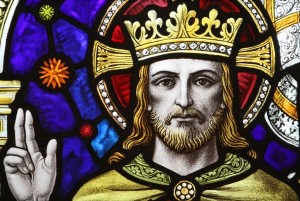 Intention: Let us pray that the right to religious liberty may be honored and upheld so that all may be able to worship and follow God freely.
Intention: Let us pray that the right to religious liberty may be honored and upheld so that all may be able to worship and follow God freely.
Reflection: On Sunday November 24, we celebrate the Solemnity of Christ the King, which reminds us that no earthly power can override man’s desire and freedom to worship the Creator. As Christians, we believe in this right and in every person’s intrinsic yearning to seek and worship God in all things and above all else.
In 1925, Pope Pius XI wrote in his encyclical Quas Primas, which instituted the Feast of Christ the King, that “Christ reign[s] ‘in the hearts of men,’ both by reason of the keenness of his intellect and the extent of his knowledge, and also because he is very truth, and it is from him that truth must be obediently received by all mankind.”
In the core document Our First, Most Cherished Liberty: A Statement on Religious Liberty, the USCCB Ad Hoc Committee for Religious Liberty “urge[d] that the Solemnity of Christ the King—a feast born out of resistance to totalitarian incursions against religious liberty—be a day specifically employed by bishops and priests to preach about religious liberty, both here and abroad.”
Did You Know? Last week, at the conclusion of their fall General Assembly, the U.S. bishops unanimously issued a “Special Message” on the HHS mandate.They stated, “As the government’s implementation of the mandate against us approaches, we bishops stand united in our resolve to resist this heavy burden and protect our religious freedom.” Go to the USCCB website to learn more about the bishops’ work to preserve religious freedom.
